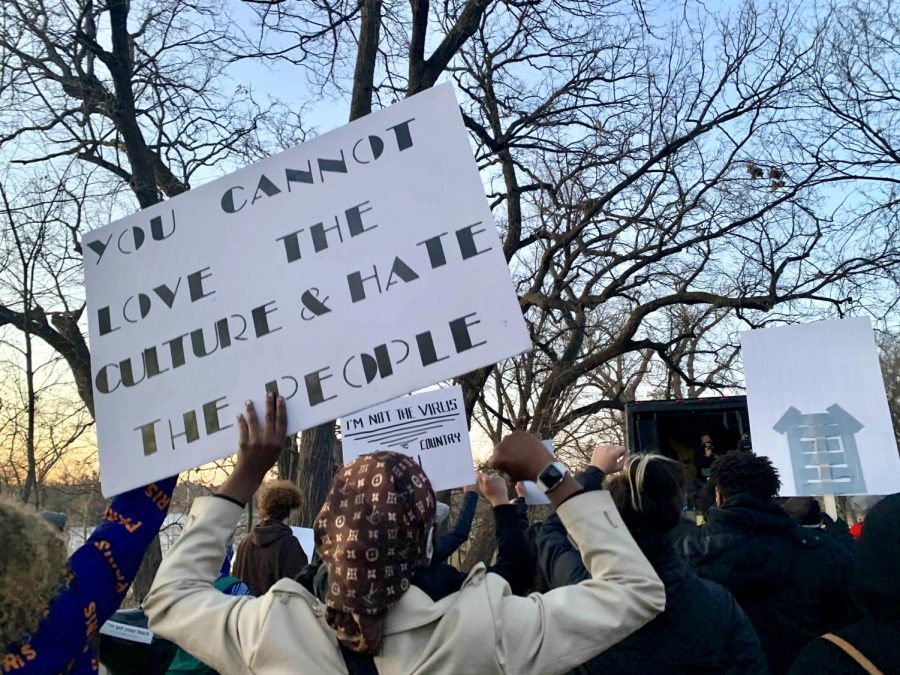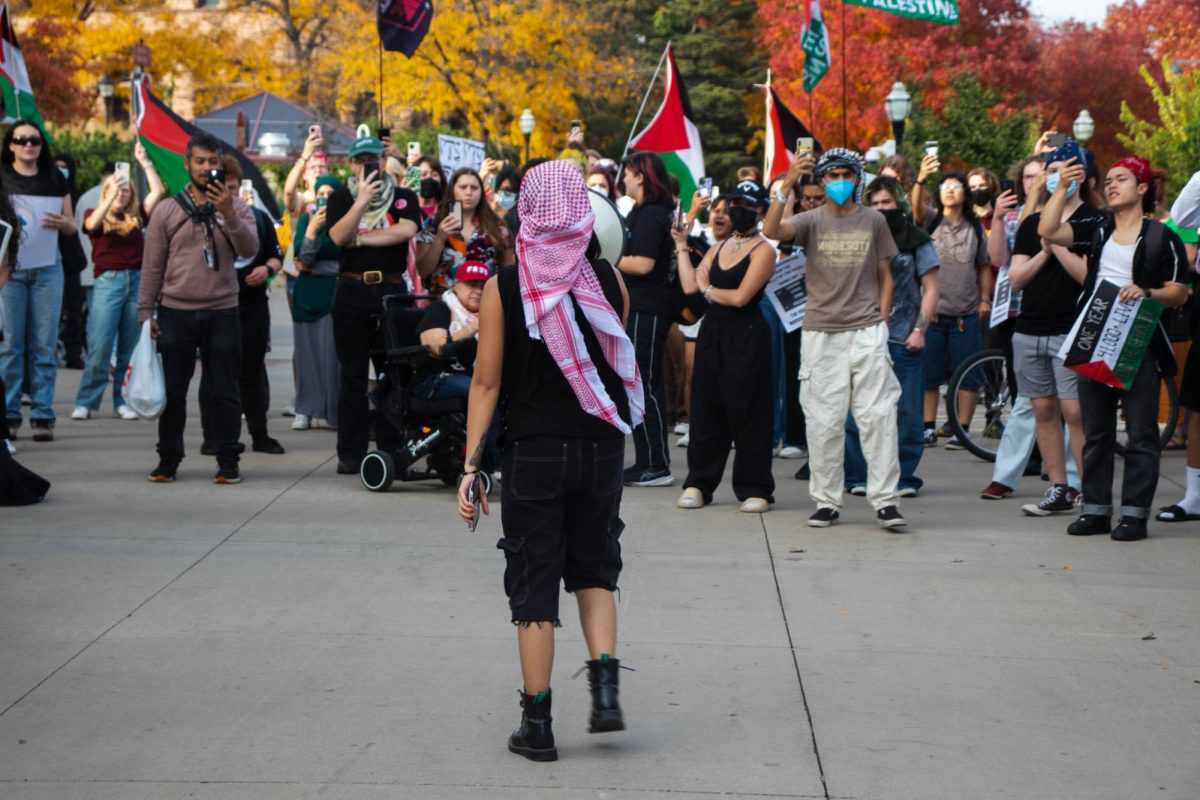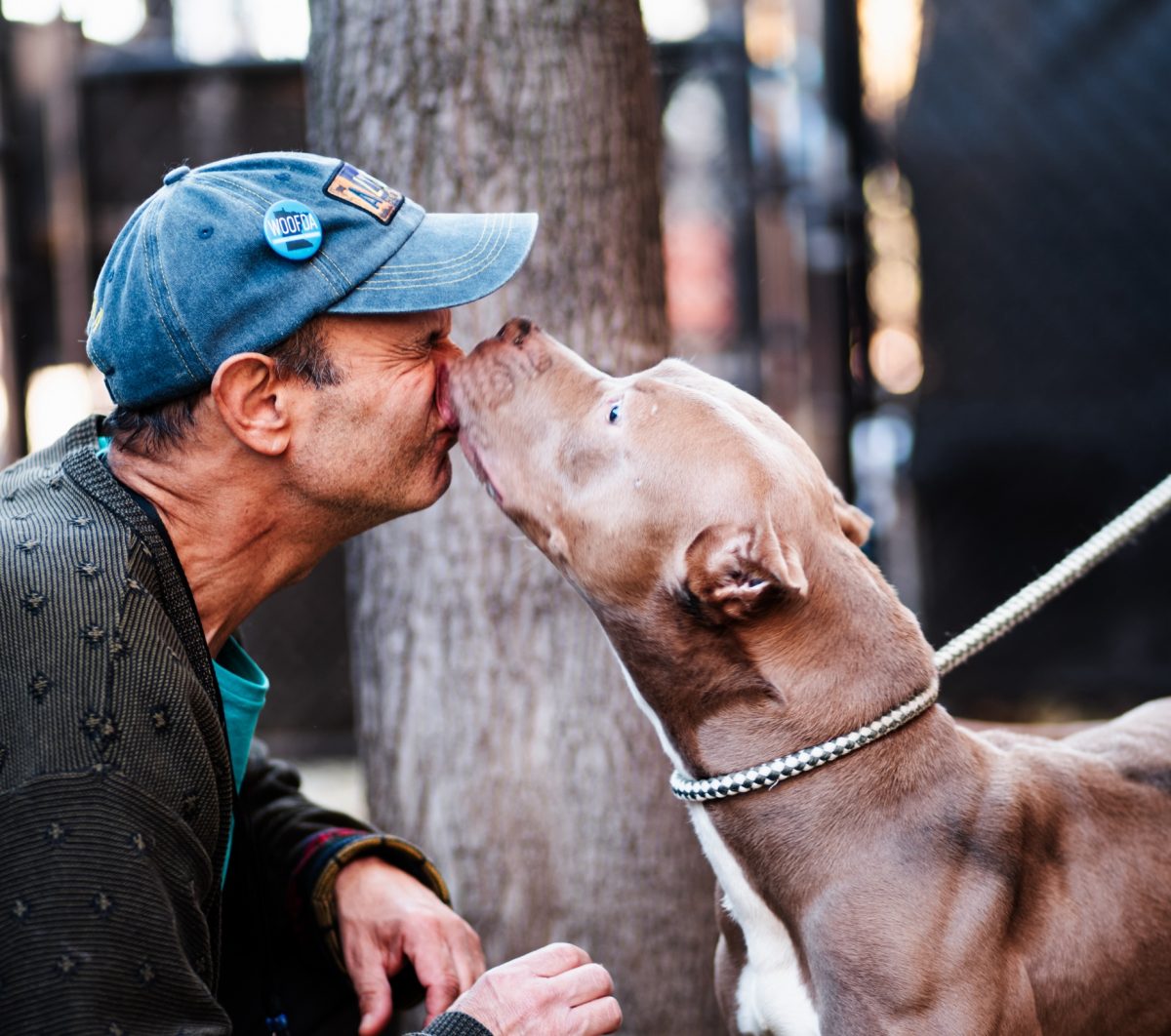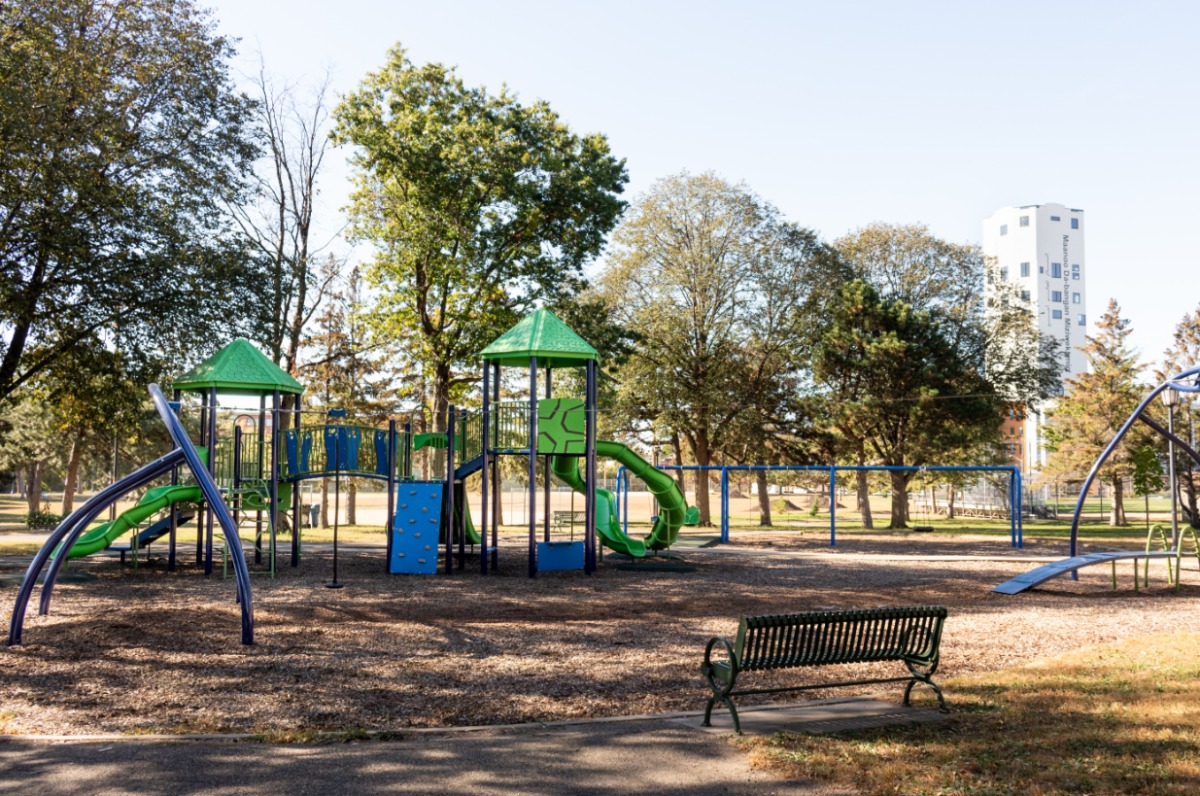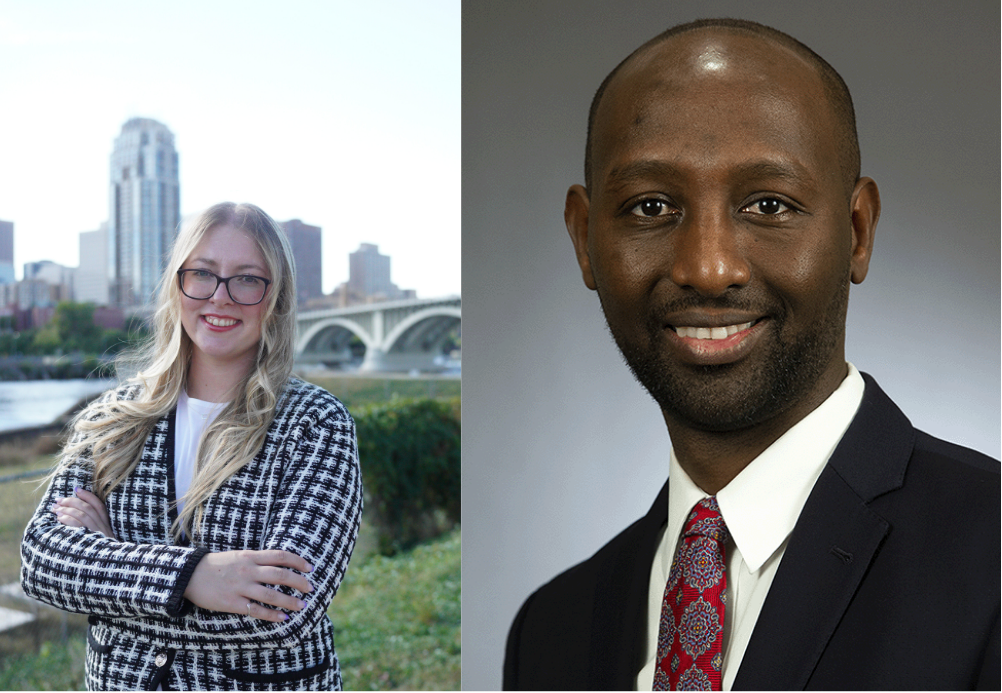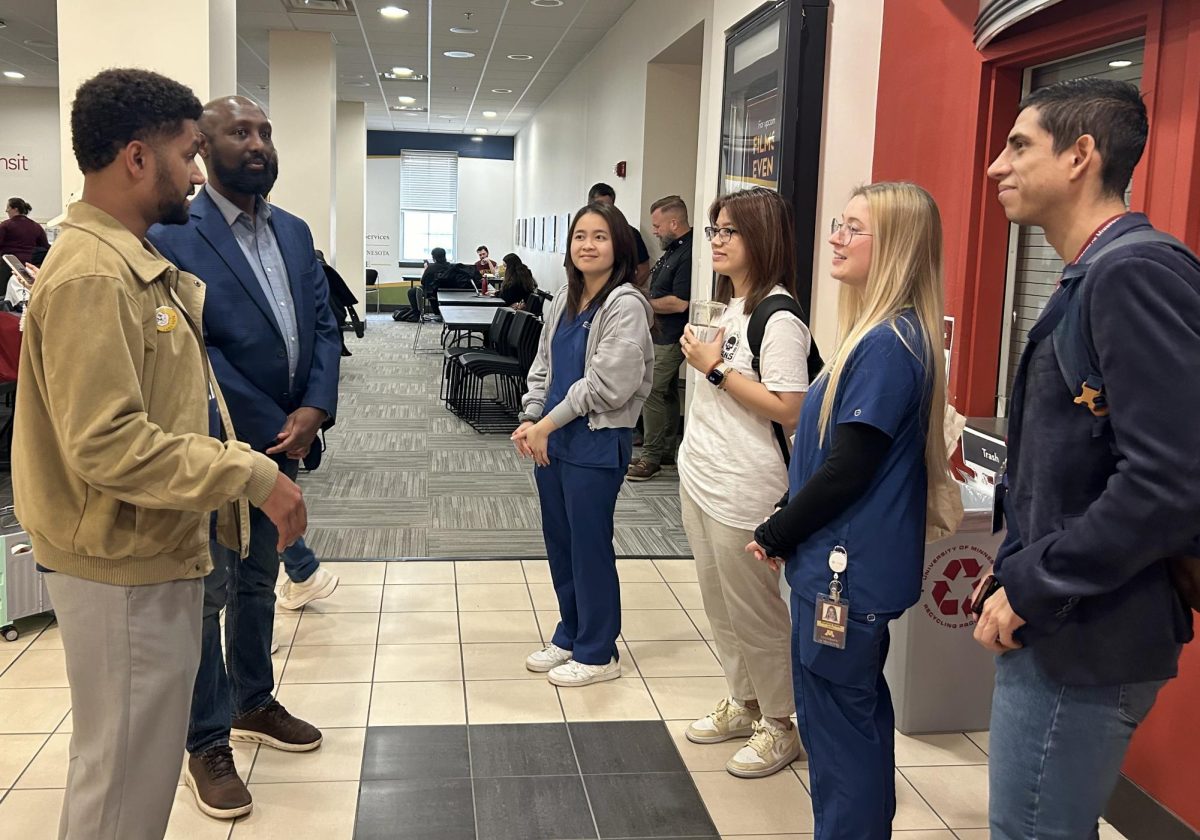Diana Nguyen had not planned to stay at the Asian Solidarity Protest on March 18 for more than an hour. But after watching Asian and Asian American community members cry for and condemn the Atlanta-area shootings, the University of Minnesota fourth-year student felt compelled to speak.
A gunman opened fire on several Atlanta-area spas, killing eight people, including six Asian women on March 16. Amid the rise of anti-Asian crimes nationwide, the shooting incident is among the most violent attacks against Asians and Asian Americans in recent history, leading to protests and rallies in the Twin Cities. Over the past two weeks, University students, staff and faculty are continuing committed efforts to support Asian and Asian American community members in the emotional upheaval.
At the protest, Nguyen read a poem she wrote that was inspired by her first year at the University, when she said she started to learn the “real history” of racism in America. Nguyen, who is of Vietnamese heritage, said she wrote the poem as part of her healing process from her many experiences with racism and hoped the poem would offer the same for those around her that day.
More than a week after the shootings, Nguyen is just one of many students finding ways to heal from what has been a long year of anti-Asian attacks and rhetoric.
The University community rallies and responds
Stop AAPI Hate, a nonprofit tracking hate incidents against Asian Americans and Pacific Islanders in the U.S., said it received 3,292 reports of anti-Asian incidents in 2020. From the beginning of 2021 to Feb. 21, they have received 503 reports and counting. But experts say the number of anti-Asian hate crimes and incidents is likely higher due to underreporting.
The Stop AAPI Hate report says nearly 20% of the anti-Asian hate incidents were reported by elders and children, suggesting that these incidents often target the most vulnerable people in Asian American communities.
Amid the sorrow and fear felt by the community, various student groups and University departments acted quickly, planning silent vigils for the victims, “processing spaces” and other services for Asian and Asian American students.
The Asian Pacific American Resource Center (APARC) staff members and the Asian-American Student Union (ASU) collaborated to hold a virtual safe space for Asian and Asian American students to process their emotions and thoughts surrounding the Atlanta-area shootings.
ASU external vice president and University student Haruka Yukioka said the processing space was meaningful because students had a chance to say how they are feeling without censoring themselves.
“Sometimes when you’re in a class with predominantly white peers, you really have to censor yourself, or you have to package up your grief or your pain into something that sounds palatable or inspiring or motivating,” Yukioka said. “[But] in a mourning space like that, you can just say ‘I feel terrible. I have no idea where to go from here. I can’t eat right now.’”
After the processing space, Diana Chandara, a graduate assistant at APARC, said community members expressed gratitude for their work despite the heavy circumstances.
“For me, that’s a reminder of the humaneness of our team,” Chandara said. “Despite dealing with these things ourselves as people, as racialized Asian American folks, we were able to draw from the love that we had for our community to be there for students and for each other.”
APARC released its own statement following the shootings. “It is also critical to name the fatigue that reverberates within our communities instigated by constant loss, fear, hate, and violence. While we continue to root ourselves in the power our communities hold, we also call on allies and accomplices to show solidarity and to collectively work towards dismantling systemic violence. Furthermore, our leaders and elected officials must take swift action to address the xenophobia that continues to target our communities,” the statement read.
Dr. Rich Lee, professor and chair of the psychology department’s diversity committee, drafted the department’s statement in response to the Atlanta-area shootings. Last week, he said there was a department-wide town hall meeting to gather, share stories and resources.
Lee said that, rather than choosing to be silent, he and his wife sat with their two sons to talk about the Atlanta-area shootings and the rise of anti-Asian hate crimes.
“That’s important because for many Asian Americans — really Asian American college students — come from immigrant families,” Lee said. “They don’t have the vocabulary, they don’t have the language to have these kinds of conversations.”
Cross-racial solidarity
APARC and ASU received messages from departments and non-Asian groups across the University to show support and solidarity. Student groups such as the Al-Madinah Cultural Center and the Black Student Union reached out to ASU board members to voice their support.
On March 24, the Asian American studies program and the Department of African American and African Studies released a joint statement regarding the uptick in anti-Asian violence as well as the Atlanta-area shootings.
“We also express our deep concern for our Asian and Asian American students and community members. We call not only for statements of sympathy, but also for measurable political and institutional change. We ask for support in informing the broader public as to who Asian Americans are and why their experiences and histories matter,” the statement read.
Solidarity has been a common theme as communities of color rally under the slogan “Stop Asian Hate.” The slogan, which is spreading rapidly across social media and activism groups, comes alongside the Black Lives Matter movement’s message, which has been amplified following the police killing of George Floyd in Minneapolis.
Individuals across different races watched Nguyen recite her poem on March 18. University third-year Simran Chugani, who attended, said that the energy of the Asian Solidarity Protest started out as sorrowful, but evolved into “finding this intrinsic power as … a community, and really using that as fuel to find solidarity.”
Black leaders from around Minneapolis helped to organize the protest, and Asian activists called out their communities for not supporting Black racial justice movements in the past. However, any lack of support appeared forgotten that night as protesters cheered, agreeing they needed to come together to end white supremacy.
Historical trend of anti-Asian sentiment
Anti-Asian hate and violence is not a new occurrence in U.S. history, usually driven by xenophobia and racism.
During the 1871 Chinese Massacre in Los Angeles, a mob of 500 non-Asian people hunted down Chinese men after a shootout between two rival gangs resulted in the death of a civilian who had been assisting responding police officers. After five hours, the mob killed 18 Chinese men and boys. Many Chinese-owned businesses and homes were looted.
The Franklin D. Roosevelt administration forcibly incarcerated approximately 120,000 Japanese Americans during World War II, between 1942 to 1945, after the attack on Pearl Harbor. The U.S. government accused Japanese Americans of conspiring against the government without evidence to back up their claims.
Then, on June 19, 1982, Vincent Chin went to a strip club with his friends to celebrate his upcoming wedding in Detroit. Two white male auto workers, who thought Chin was Japanese, beat him with a baseball bat. Chin died in the hospital four days later. Witnesses who knew the two men said they blamed car imports from Japan for their unemployment.
Following their trial, the men each received a $3,000 fine and no jail time. The verdict sparked national outrage and protests from Asian Americans.
The historical trend of anti-Asian sentiment does not end there. Last year, Donald Trump and other U.S. officials called the COVID-19 virus the “Chinese virus” or the “kung flu virus,” rhetoric which helped to fuel anti-Asian sentiment, according to a study published by the Anti-Defamation League.
“It’s never just about us. It’s about centuries and centuries of sexual violence, aggression, misogyny and racism perpetuated on to us,” Yukioka said. “It’s never just about the one person, or the group of people, it’s about systems of oppression that have taught people that it’s okay to use us or take advantage of our bodies like this.”
The six Asian women killed in the Atlanta-area shootings ignited conversations on racialized misogyny as a motivating factor for the shooter.
One of the earliest federal immigration laws, called the Page Act of 1875, targeted and prohibited Asian women from entering the U.S. because they were seen as sexual objects and prostitutes.
“The claim was that [the Atlanta-area shooter] had a sex addiction and wanted to get rid of that and then went out and shot women,” said Kong Her, the APARC program director. “There’s all sorts of things out there that contribute to [sex addiction], so why go out and shoot women? That’s something that we’ve been aware of and keen to. We don’t want to lose that in this conversation as well.”
Last Wednesday, Yukioka went on a walk with an Asian American friend. For the first time since it happened, neither of them talked about the Atlanta-area shootings. Yukioka said the walk felt healing to them.
“It was healing because if one of us just started crying, we understood. And we both know if people started coming towards us, we knew that the other was feeling fear, without having to say ‘I’m feeling afraid,’” Yukioka said. “Just to know that we are both feeling this hard thing together, and neither of us has to explain why it’s happening or how it feels, is so powerful.”
Correction: A previous version of this article mischaracterized anti-Asian hate incidents as hate crimes. The error has since been corrected.
Editor’s note: Haruka Yukioka is a member of the Minnesota Daily’s board of directors. The board does not dictate the coverage or content production of the Daily.


